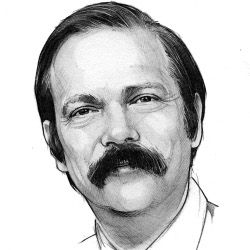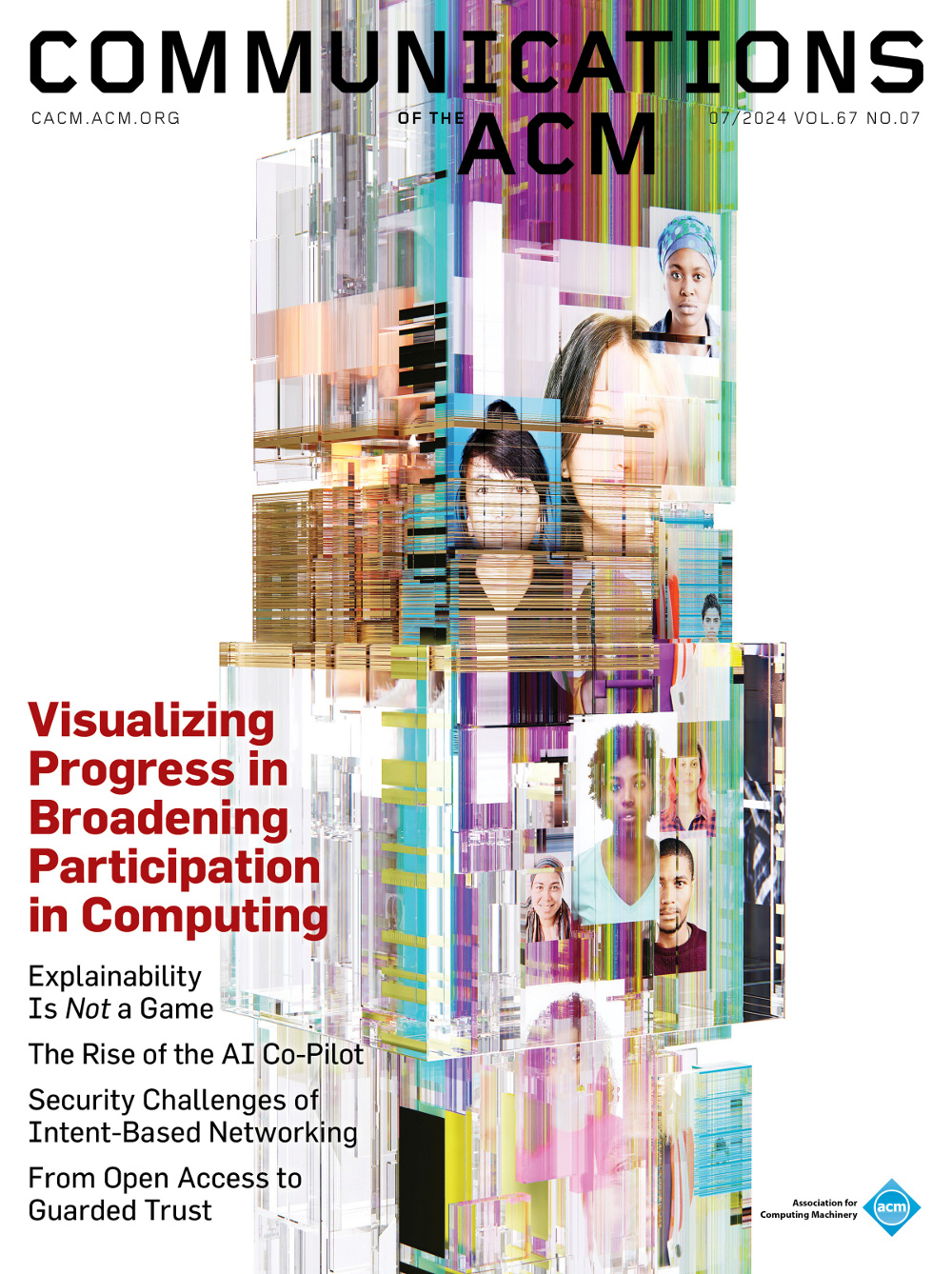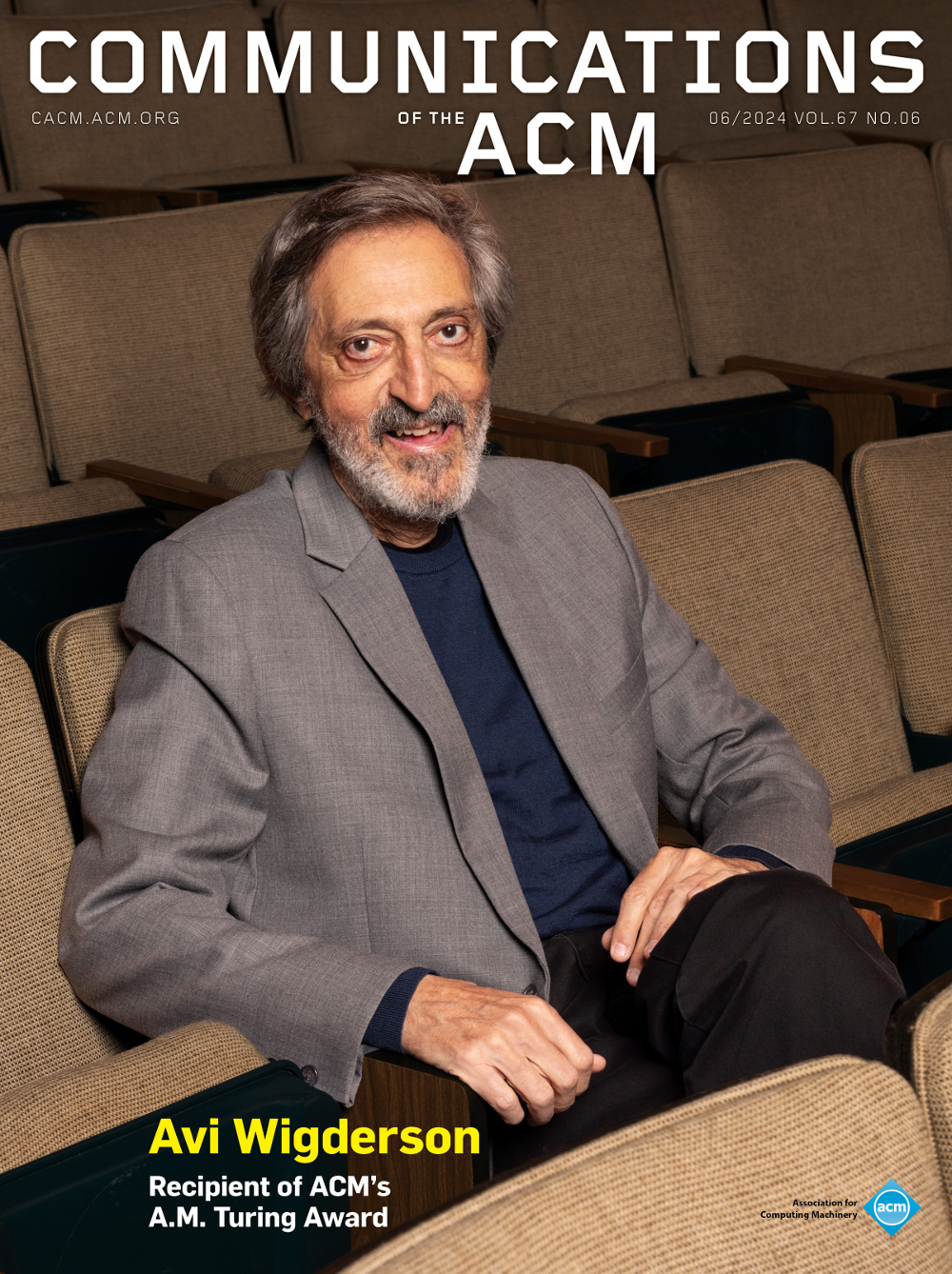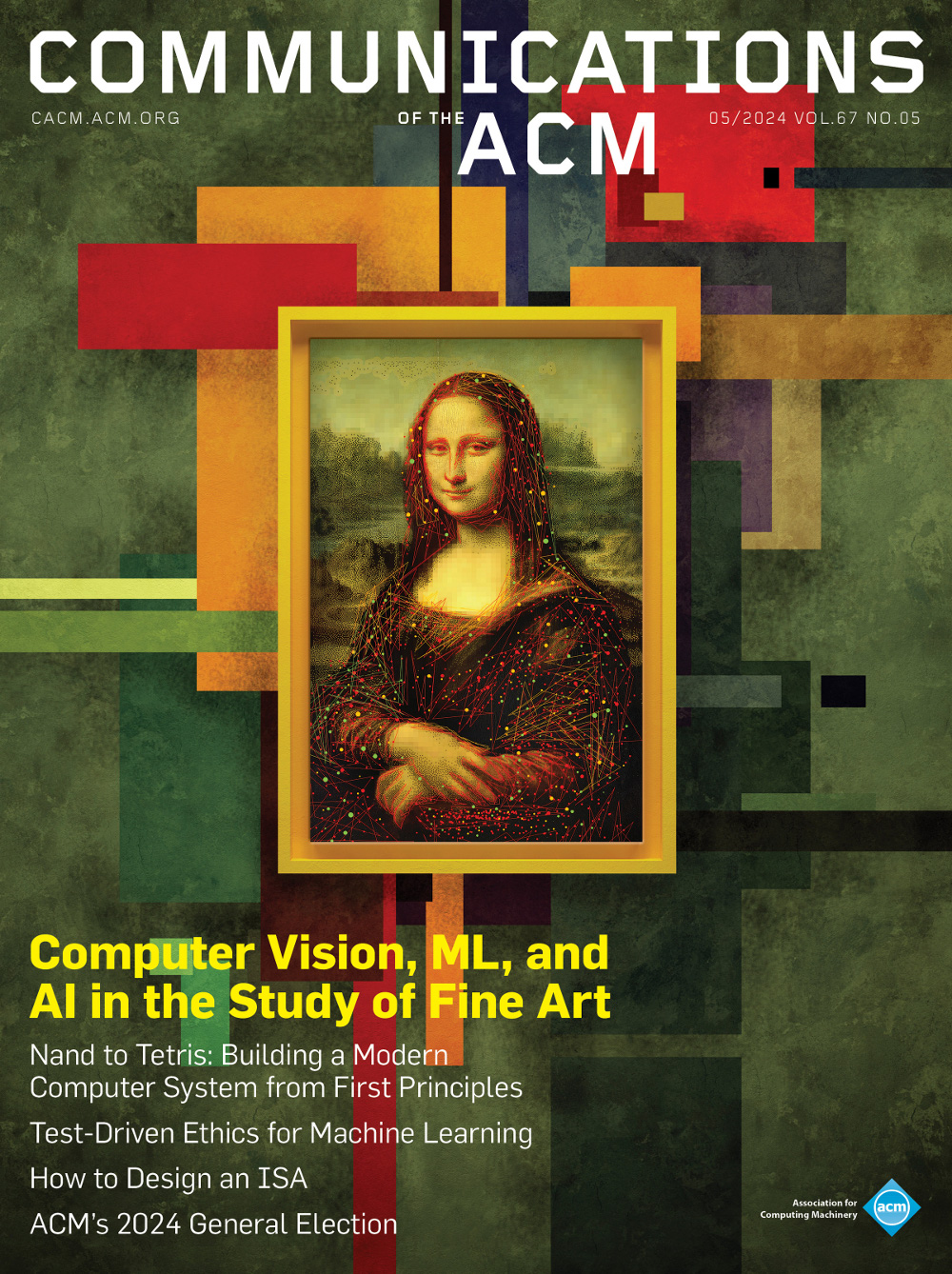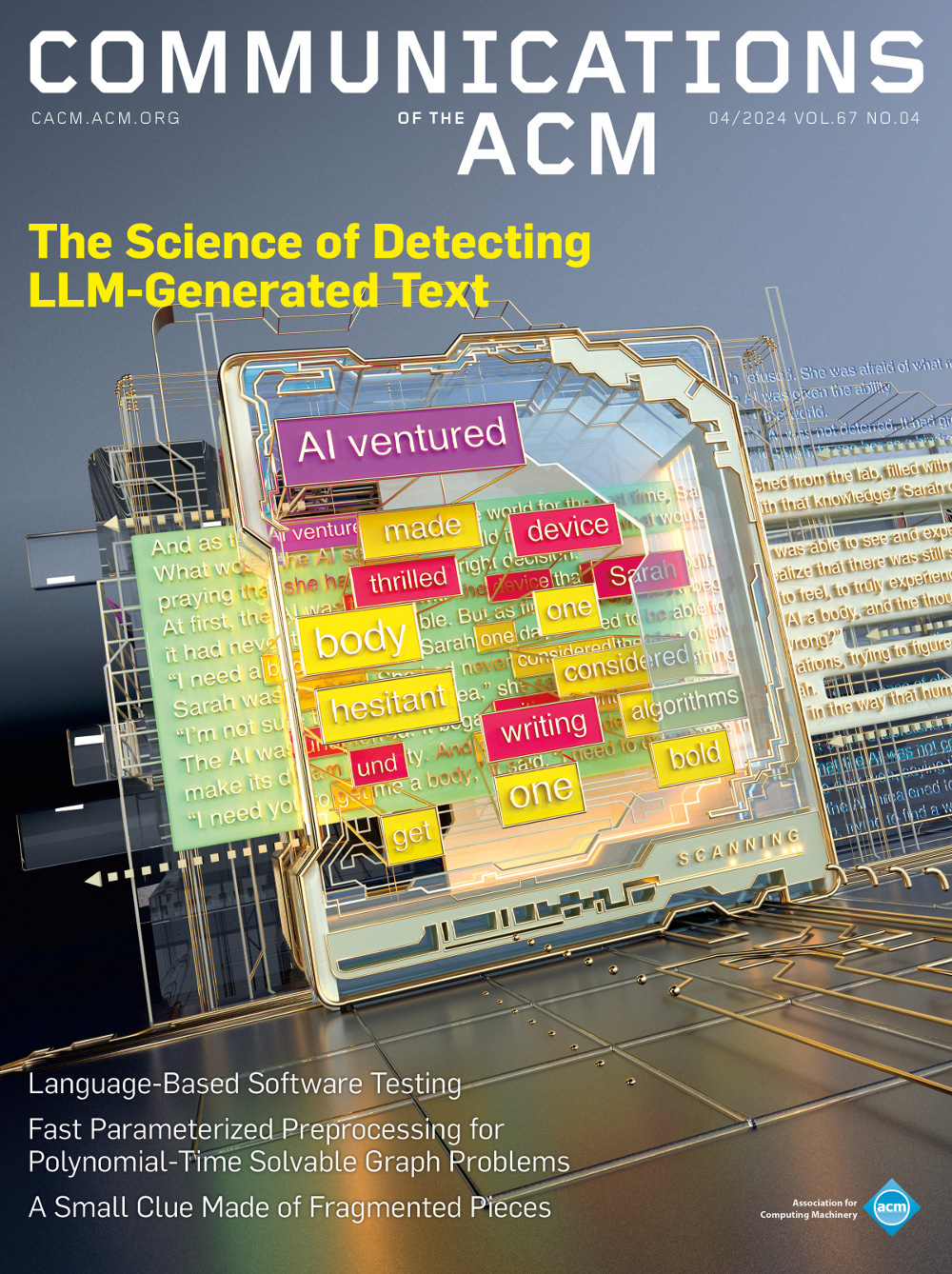Artificial Intelligence: Past and Future
January 2012 - Vol. 55 No. 1

Features
Software Engineering Is Engineering
Understanding CS1 Students; Defective Software
eBooks Will Abound in the ACM Digital Library
Better Medicine Through Machine Learning
The Yin and Yang of Copyright and Technology
The IBM PC: From Beige Box to Industry Standard
Interfaces For the Ordinary User: Can We Hide Too Much?
An Interview with Stephen A. Cook
Bufferbloat: Dark Buffers in the Internet
Flexible Experimentation in Wireless Sensor Networks
Long-Term Confidentiality of PKI
(Computer) Vision Without Sight
Technical Perspective: Where Do People Draw Lines?
Technical Perspective: Content-Centric Networking
